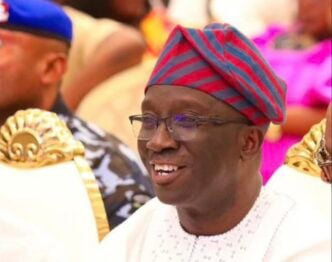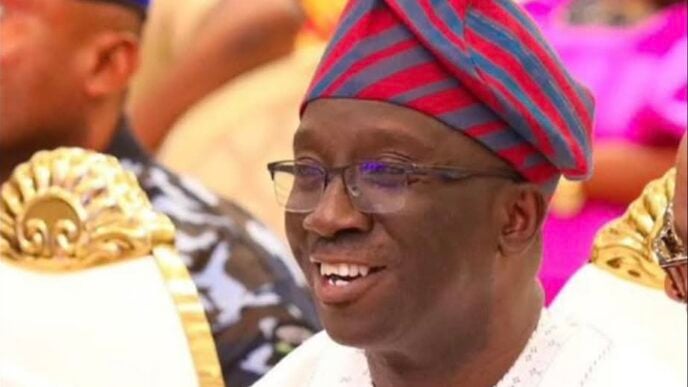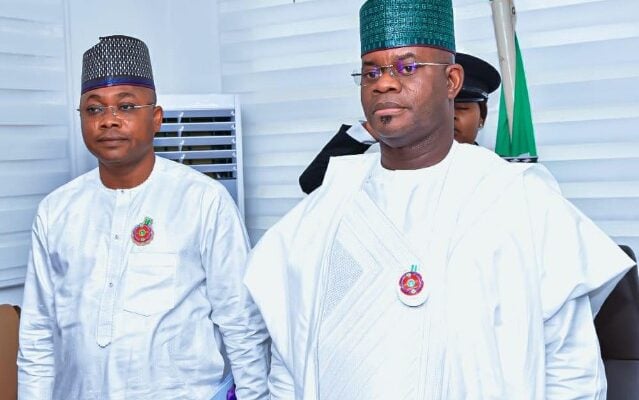BY EBIKABOWEI KEDIKUMO
The political climate in Delta state has heightened significantly since Senator Ned Nwoko’s recent alignment with the ruling APC party. His comments referring to the current governor as a “boy” have sparked accusations of “arrogance” from certain Delta Ijaw politicians. However, such a label invites a deeper examination of Nwoko’s background and the intricate social dynamics at play. Viewing this solely as arrogance overlooks the rich cultural tapestry of age, status, respect, and tradition that holds importance in many African societies.
Within this framework, Nwoko’s position as an elder contributes to his right to call the younger governor “boy,” a term that acknowledges their age difference rather than expressing contempt. In various cultures, using the term “boy” to refer to a younger individual can reflect an amicable generational distinction rather than an affront. It resonates with how a father might fondly address his son, underscoring the respect traditionally afforded to elders and their wisdom.
Therefore, Senator Nwoko’s choice of words may signify a recognition of their respective social standings rather than a display of disrespect. I remain resolute in my believe that the distinguished senator has no reason to regret or apologise for his remarks. The senator’s stance is reminiscent of Chief E. K. Clark’s frequent references to former President Goodluck Jonathan as his “son”. Moreover, Ned’s reaction can be seen as a “stimulus-response” in psychological terms, illustrating his inherent superiority over the young and inconsiderate governor, who like his predecessors, has maintained the “sustainable underdevelopment” of Delta Ijaw communities.
Advertisement
To truly appreciate Senator Nwoko’s perspective, we must contextualise his statements within the broader realm of African cultural values, where reverence for elders is paramount. This understanding challenges the oversimplified portrayal of him as arrogant and encourages a more profound dialogue about tradition, leadership, and the generational dynamics that underpin political discourse.
IS SENATOR NED NWOKO REALLY ‘ARROGANT’? A RESOUNDING NO FROM ME!
Indeed, the characterisation of Ned Nwoko as “arrogant” is not only misplaced but fundamentally overlooks the nuances of his character, accomplishments, and motivations in the political arena. He has the stature and quality to address the governor as a “boy”. Ned is a man of exceptional background—born into privilege, a prince by lineage, and highly educated. His impressive wealth comes not from political manoeuvring but from wit, hard work, and intellectual prowess.
Advertisement
He is the head of one of the most prestigious law firms in England and is a solicitor of the Supreme Court of England. Ned is incredibly wealthy and enjoys the finest things in life, including a remarkable family. He is married to six exceptionally beautiful women, and the way he manages these relationships with harmony and respect speaks volumes about his capabilities as a leader. This ability to nurture personal and professional relationships underscores his potential as a unifying figure in society and contrasts sharply with the greed, self-centeredness, and disarray in leadership often seen among the Delta Ijaw political figures.
Ned’s political experience is substantial, having served in the house of representatives and currently holding a senatorial position, both with the Peoples Democratic Party (PDP). His deep-rooted understanding of the political landscape, both in Delta state and on a national level, positions him as a viable candidate for governor. His tenure in the house has been marked by a commitment to advocacy for his constituents, which further legitimises his critiques of the current governor. Rather than an indication of arrogance, Ned’s assertion underlines his substantial political stature and his frustration with a perceived lack of accountability and responsiveness in leadership—qualities absent among Delta Ijaw PDP political leaders.
In making his case, Ned has articulated his position clearly, stating: “We have projects that I discussed with him that need to be completed for the people, which he has refused to address.” Is that not a sufficient reason to label the governor as a “boy”? When the governor ignores the concerns of his constituents, it becomes an affront not just to Ned but to the entire society. Ned’s concern is not merely a reflection of personal grievance but rather echoes broader community frustrations regarding governance and accountability.
Labelling the governor as a “boy” in response to neglecting essential projects highlights Ned’s commitment to his constituents and their needs, which is a fundamental aspect of effective political leadership. In stark contrast to many of the Delta Ijaw political leaders, who appear to prioritise their political positioning over the interests of the people, Ned stands as a beacon of integrity. The overwhelming trend among Delta Ijaw political leaders has been to compromise their integrity for personal gain, demonstrating a pattern of submissiveness toward the governor.
Advertisement
This dynamic weakens the representation of Delta Ijaw needs and exemplifies a troubling cycle of neglect. Ned’s contrasting approach—prioritising community advancement over personal interests—marks him as a sincere advocate for his people, including other members of society at large. Importantly, Ned’s focus on creating a new Anioma state reveals a commitment to regional development, a vision significantly absent in the actions of many Delta Ijaw politicians.
While the Delta Ijaw politicians focus on securing personal benefits, Ned endeavours to advocate for structural changes that could lead to improved governance and access to resources for his constituents. His actions contrast sharply with the inertia of Delta Ijaw political leaders who yield to the status quo and fail to push for basic infrastructural improvements that could alleviate ongoing struggles for residents of their Ijaw communities. Unlike many Delta Ijaw politicians of the PDP who have compromised their integrity for personal gain over the past two decades, Ned stands apart. He does not rely on the government for his livelihood—he was a successful businessman well before his foray into politics.
The truth is that if there was just one Ned Nwoko among Delta Ijaw politicians, essential projects like the Ayakoromo bridge and other abandoned projects in Ijaw communities would have been completed long ago. Instead, many Delta Ijaw politicians have grown submissive toward the governor, fearing that any criticism might jeopardise their positions or the prospects of their children in government roles. Thus, the Delta Ijaw political leader finds himself voiceless, marginalised, and impotent in addressing the persistent issues plaguing his community—what one of my Ijaw brothers refers to as “sustainable underdevelopment.”
The PDP government is, quite simply, neglectful toward the Delta Ijaw communities, and we need the likes of Ned Nwoko. Ned’s ambitions differ remarkably from others. For instance, why can’t the Burutu North and South PDP heavyweights push for the establishment of a new local government council out of the very big Burutu council to alleviate their constituents’ struggles with accessibility to the Burutu local government headquarters?
Advertisement
It is sad that residents of Burutu LGA must traverse other local government areas just to reach the Burutu office. Burutu is due for a split into two local government areas, and this will bring the government closer to the communities. But the Delta Ijaw politicians are too preoccupied with personal benefits, securing positions for their children as local government chairpersons, counsellors, commissioners, etc., rather than genuinely representing the interests of the Delta Ijaw people. Ned is genuinely invested in the welfare of his people, and for the governor to disregard him is ample cause to label him as lacking maturity.
However, the Delta Ijaw politicians cannot make such statements because they have aligned themselves with the governor’s interests and their personal interests. Moreover, the notion that Ned does not understand the “power of the governor,” as suggested by another Delta PDP local government leader, underscores a critical disconnect. The governor’s perceived absolute authority should not lead to complacency; rather, it should inspire accountability and representation. Such narratives from the Delta Ijaw PDP combat soldiers, especially the youths, reflect a broader mindset among many Delta Ijaw politicians who view authority figures with reverence, often at the expense of fulfilling their obligations to their constituents.
Advertisement
This culture of servility perpetuates a cycle of neglect among Delta Ijaw communities, emphasising the need for leaders like Ned Nwoko who challenge norms and advocate for their people. To the Delta Ijaw PDP leaders, the governor appears almost godlike—a figure whose authority and misdeeds must be respected. Why wouldn’t they view him that way, especially if he provides for their families? He is the source of their selfish sustenance. If I were in their position, my perspective would likely be similar. Any attempt by any of them to voice concerns about their communities could lead to the loss of their livelihoods.
But the truth is that the governor’s influence only extends to those he takes care of; it does not reach someone like Ned, who possesses far more wealth, resources, vision, and leadership qualities. Ultimately, it is essential to recognise that it is not Ned Nwoko who embodies arrogance; rather, it is the governor’s disregard for the voices of the people that emerges as the true form of arrogance. While Ned champions accountability and progress, many Delta Ijaw PDP leaders choose silence, opting for the safety of their political alignments over genuine advocacy for their communities’ needs.
Advertisement
This dynamic places a strain on the political fabric of Delta Ijaw, necessitating a reevaluation of who truly represents arrogance in this context. In conclusion, Ned Nwoko’s character is defined more by his advocacy for the people, his commitment to integrity, and his ambitious vision for development than by any misguided labels of arrogance. His unique position within the political landscape of Delta State highlights the flaws in a system that too often rewards sycophancy, dependency, and complacency at the expense of accountability and progress.
In confronting these issues head-on, Ned stands out not just as a politician but as a progressive leader invested in the welfare of his people, challenging the status quo for the betterment of the entire society, including Delta Ijaw communities. It is imperative for Delta Ijaw political leaders to take a page from Ned Nwoko’s playbook. His approach embodies the dedication and resolve necessary to genuinely represent the interests of the people. Ned is a true man of the people, and his example serves as a powerful reminder of the kind of leadership that can stimulate positive change and inspire a brighter future for the Delta Ijaw region.
Advertisement
Ebikabowei Kedikumo writes from Ayakoromo Town, Delta state and can be reached via +234 8134853570
Views expressed by contributors are strictly personal and not of TheCable.
Add a comment









